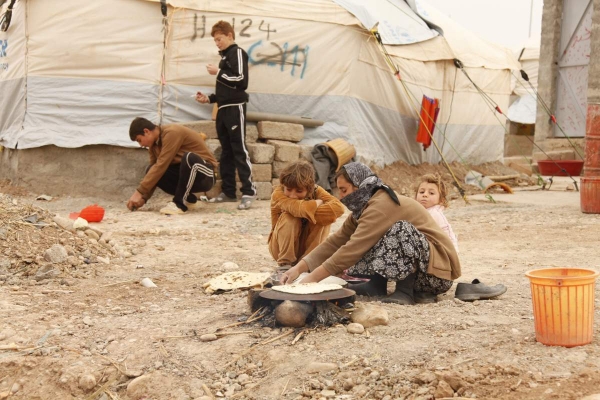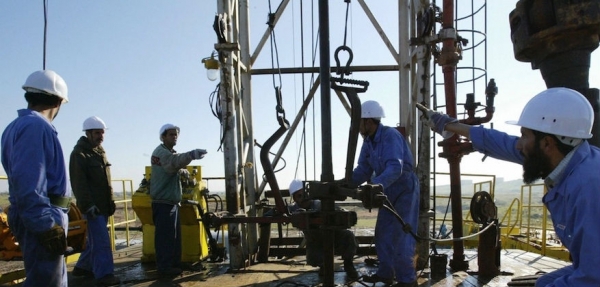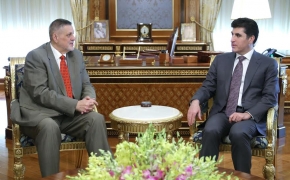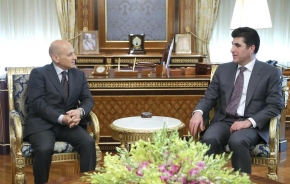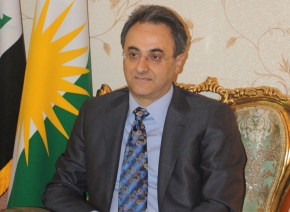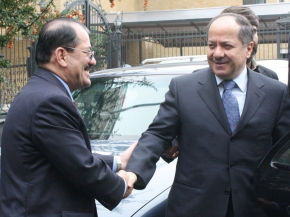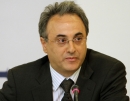Sj world news (1015)

Kurdistan Region needs further support for IDPs and refugees
Erbil, Kurdistan Region, Iraq (cabinet.gov.krd) – The Kurdistan Regional Government, KRG, has been struggling to provide adequate humanitarian assistance to an overwhelming number of Iraqi internally displaced persons, IDPs, and Syrian refugees.
However, according to the KRG Ministry of Planning, the Kurdistan Region needs further assistance from United Nation agencies and the international community in order to be able to continue providing such assistance.
Director General for Capital Investment and Budget in the KRG Ministry of Planning, Mr. Zagros Fattah, told the KRG website that the financial burden on the KRG has increased dramatically and it can hardly afford to provide adequate assistance to the already settled over 1.5 million refugees and IDPs, who have sought refuge in the Kurdistan Region.
He warned that additional IDPs are anticipated as military efforts are taken to liberate Mosul and other places currently under the domination of the Islamic State terrorist organization, ISIS. Despite the best efforts made by the KRG, it is beyond its capacity to adequately meet the basic humanitarian needs of all IDPs and refugees.
“Although the Federal Government of Iraq claims it lacks funds to assist the IDPs, it seems there is no political will to do so. Internally displaced families are fragile Iraqi nationals and it is the utmost duty and responsibility of the Iraqi Federal Government to support the KRG in providing assistance to them,” Zagros Fattah said.
Most displaced people arrived in 2014 during a time when the KRG was facing severe financial difficulties. The Iraqi Federal Government stopped providing the KRG its share of national revenue, as earlier agreed.
According to a World Bank report published in February 2015, Baghdad’s refusal to send the Kurdistan Region budget in 2014, combined with the refugee and IDP crisis, adversely impacted all productive and social sectors in Kurdistan Region. "Together the wave of refugees and IDPs exerted a huge pressure on the KRG as it exceeds 28 percent of its own population", said the World Bank report.
The World Bank projected the KRG needs US$ 1.4 billion to stabilize the influx of displaced people at the current level, without allowing for additional IDPs. If 300,000 additional IDPs flee to the Kurdistan Region this projection could rapidly rise to over US$ 2 billion.
According to the UNHCR Global Appeal 2015 Report, “The escalation of armed conflict across the central governorates of Iraq, and the constantly changing security situation, have resulted in new and secondary movements of internally displaced people across central Iraq and the Kurdistan Region of Iraq”.
In a joint statement by the KRG and United Nations on 26 March 2015, Deputy Special Representative of the UN Secretary-General for the UN Assistance Mission for Iraq as well as UN Resident and Humanitarian Coordinator for Iraq, Lise Grande, stated that, “This is a major humanitarian emergency. It’s imperative that we as the international community support the Kurdistan Regional Government in assisting the victims of ISIL.”
Since the liberation of Tikrit, according to the Head of Emergency Committee in Sulaymanya Governorate, Aziz Sofi, an additional 3,000 families fled from Anbar and sought safety in the governorate.
“Although Tikrit is now liberated, but no family is willing to return to the city due to security concern”, said Sofi.
According to the latest International Organisation for Migration, IOM, report published in April, 28,170 additional IDPs fled to Erbil Governorate and 3,042 to Duhok Governorate.
April Report: Kurdistan Region oil production at record level, export commitments met
Erbil, Kurdistan Region, Iraq (cabinet.gov.krd) - According to the April 2015 report published by the Kurdistan Regional Government, KRG, Ministry of Natural Resources, KRG commitments under the 2015 Federal Budget Law have been met, and oil production has reached record levels.
According to an agreement on oil export and budget, reached last December between the KRG and the Federal Government of Iraq, Kurdistan Region is committed to export 550,000 bpd (barrels per day) in return for a budget entitlement close to one billion US dollars per month to be paid by the federal government. The agreement was approved within the framework of the Iraqi Federal Budget Law for 2015.
In April, the Kurdistan Regional Government delivered to the Iraqi State Oil Marketing Company, SOMO, a total 16,878,985 barrels for an average of 562,633 bpd.
Kurdistan Region oilfields supplied 12,457,371 barrels averaging 415,246 bpd, while North Oil Company (NOC) oilfields, Kirkuk, supplied 4,421,614 barrels averaging 147,387 bpd. Oil from both sources is exported through a KRG pipeline to the Turkish oil export facility at Ceyhan.
In March the KRG published cumulative export data, noting that while it met its oil export commitments, the KRG has yet to receive its full entitlement per agreement under the Federal Budget Law of 2015.
Last week, in two separate meetings, the Kurdistan Region Prime Minister and a number of members of the Council of Ministers, met Kurdistan Region Baghdad representatives, and the Speaker of the Kurdistan Parliament along with Parliamentary groups.
The Prime Minister reaffirmed KRG’s commitment to the December agreement and the Iraqi 2015 Federal Budget Law. He pointed out, however, that if talks with Baghdad do not produce positive results and Baghdad continues its breach of the Federal Budget Law, then the KRG will have to consider other options to stabilise the Region’s financial security.
PM Barzani and UN Special Representative discuss Baghdad-Kurdistan Region agreement
Erbil, Kurdistan Region, Iraq (cabinet.gov.krd) - Kurdistan Region Prime Minister yesterday received United Nations Special Representative for Iraq, Ján Kubiš and his accompanying delegation.
The meeting focused on the agreement, signed last December, between Kurdistan Regional Government, KRG, and the Federal Government of Iraq on oil export and budget, as well as Iraq’s 2015 Budget Law. It highlighted Kurdistan Region’s commitment to the agreement.
Prime Minister Barzani expressed his concern for the fact that the Federal Government of Iraq has not been honouring its commitment to the agreement with Kurdistan Region.
He pointed out that the agreement was reached following appeal and support from United Nations, United States and United Kingdom. He urged the three sides to play their role and urge Baghdad to meet its obligations under the agreement and the Budget Law.
In another part of the meeting, the two sides emphasised on further cooperation between United Nation agencies and Kurdistan Regional Government, particularly in dealing with possible increase in numbers of internally displaced people.
They reaffirmed the necessity of further commitment of the international community in assisting Kurdistan Region relevant institutions and United Nations agencies, particularly those which work in humanitarian fields.
The two sides also discussed the latest developments in Iraq, the situation in Anbar Province, and the security situation in the region in general.
Italy will continue its assistance to Kurdistan Region
Erbil, Kurdistan Region, Iraq (cabinet.gov.krd) - Kurdistan Region Prime Minister, Nechirvan Barzani, yesterday received Italy's Ambassador to Iraq, Massimo Moratti and his accompanying delegation, who visited Prime Minister Barzani on the occasion of ending his duties in Iraq.
Mr Morrati pointed to the assistance that the Italian government provides to the people and government of Kurdistan Region, particularly humanitarian assistance and training of the Peshmerga forces, stressing that Italy’s assistance to the Kurdistan Region will continue.
Prime Minister Barzani thanked Mr. Morrati and praised his role as Italy’s ambassador to Iraq, who has been able to contribute to the establishment of solid relations between Kurdistan Region and Italy, and deliver the true image of the Region to his and European countries. He wished success to Mr. Morrati in his future position.
Prime Minister Barzani recalled that those visits by Italian senior delegations to Kurdistan Region, particularly during difficult times, are being highly appreciated.
He reiterated that the threat of the Islamic State terrorist organisation, ISIS, has not been eliminated, which is why it is essential to continue cooperation between the two sides.
Jegarkhwein Talks with Kurd Press: Kurdistan Region of Iraq is an Opportunity for Iran
In a talk with Kurd press, Jegarkhwein dealt with reviewing different concerns including economic political problems and their causes in Kurdistan Region and Iraq, the cause of Iran’s weak presence in Kurdistan Region’s market as compared to Turkey, the political-historical relations between Iran and Kurdistan Region of Iraq and the necessity of improving the cultural-scientific relations between them. A short description follows:
In his view the crises compose of a collection of threats and chances. He believes that presently two crises, ISIS and financial concerns, are the problems Kurdistan Region of Iraq. Concerning fighting terrorism of quasi-government of ISIS, Pishmerga forces managed to courageously fire the terrorists from almost all occupied areas, and now in all battlefields Pishmergas has taken the control. Relating to financial crisis I do insist that the cause of this is undoubtedly the former Iraq cabinet, of course, terrorists’ strike made it worse. He continued to say that one of the roots of current problems of Iraq is the way it formed as a country. Iraq without deeming the identical joints of tribes was formed by great powers. That was why a national identity has never been formed in Iraq. Furthermore, mentioning the concern of physical existence of Iraq he believes that all social political opportunities have to be used in order to resolve this problem.
In a response to a question, Jegarkhwein said that the oil transition pipeline of the Region passes through Turkey. However, as Qassem Rostami, the chief of Economic Improvement Centre of Iran-Iraq and senior consultant of first vice-president of Islamic Republic of Iran traveled Erbil, some agreements were reached of which one relates to energy matter. In addition he continued that the officials of the Region have a balance look toward the relations with neighbors.
The deputy-representative of KRG of Iraq in Iran believes that Iran has entered good and beneficial market of the Region late, thus it has missed many chances. In his view this condition has appeared that between both sides there are numerous historical, cultural, social joints.
Relating to the strategy of the Region concerning gaining the Independence from Iraq, Jegarkhwein refers to a phrase of the head of the Region saying that this process (the Independence) is still going, although fighting ISIS has postponed this. This is meant that we cannot relinquish, however; we want to accomplish that without force, fighting and bleeding, with our unity, research, wisdom and talking with Baghdad.
About sayings put concerning better relation of Kurdistan Democratic Party with Turkey and Patriotic Union with Iran he said he would not accept this in this way; since the relations among Kurdistan Region, Iran, Iraq and other countries are not in the form of Party but formal and almost diplomatic. The foreign relations mechanisms of the Region are not bound to any party and operate completely nationally.
Relating to Iran support from the Region against ISIS Jegarkhwein said that Iran is an important and great neighbor. The leaders of Kurdistan Region as the representative of their nation are always appreciating Iran generous supports and helps. It can be said that after Islamic republic triumph, our relation with Iran have been warm and close all times but a short time long ago. He continued to mention a few aids of Iran to Kurdistan Region of Iraq.
The deputy-representative of KRG of Iraq in Iran in a response to the last question relating to current obstacles to improve the relations between Iran and the Region answered clearly and elaborately. In general in his view matters like Iran-phobia for some Kurds in the Region and Kurd-phobia for some Iranian officials, limited Iranian authorities’ welcoming to improve the relations with Kurdistan Region, preventing scholar and culture cooperation on the behalf of Iranian officials, not caring to the public diplomacy by both sides to improve the relations have made obstacles. Finally he put an end to his interview by say this that: deep and the strategic relations in the fields of culture, economic and sociology can cause trustful perspective of relations in all cases.
Nazem Dabbagh Strongly Denied the News of Masoud Barzani’s Death
Nazem Dabbagh the representative of Kurdistan regional Government of Iraq in Iran strongly denied of the news of Masoud Barezani’s death on some Medias. According to the report of international group of Fars, KurdPress News Agency quoted by Nazem Dabbagh the representative of KRG strongly denied Masoud Barzani’s death. Kurdpress printed: while today, Tuesday, June 9th, some Medias of Iraq published news based on Masoud Barzani’s death the head of KRG a result of cerebral stroke, nazem Dabbagh strongly denied the news.
While talking with Kurdpress News Agency, Nazem Dabbagh declared that the news is fully false and untrue; publishing such false is an attempt on the behalf of Kurds’ enemy and Masoud Barezani is in good and healthy condition.
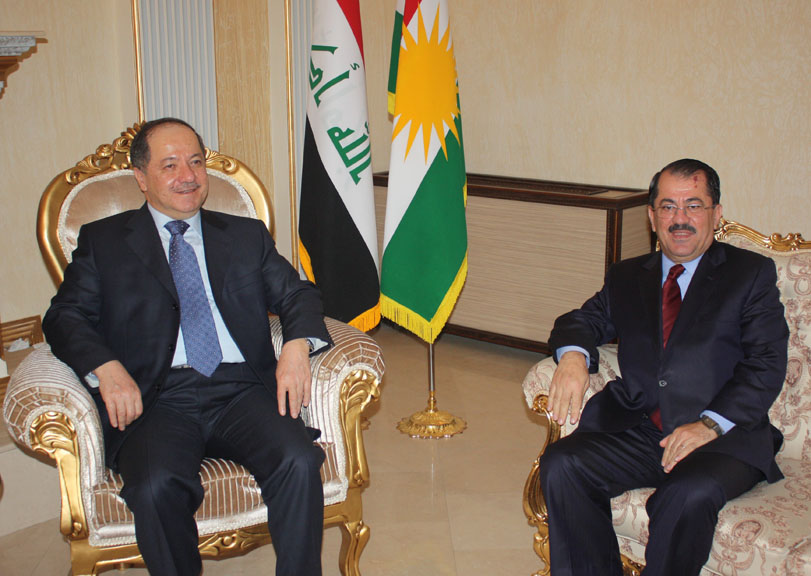
Nazem Dabbagh in talk with Ana News Agency: Enemy will not Achieve its Goals
The representative of KRG of Iraq in Iran in talk with Ana News Agency denied the news of Masoud Barzani’s death.
According to the international group of Ana News Agency, hours ago news resources of Iraq reported the death of Masoud Barzani the head of KRG; which Nazem Dabbagh the representative of KRG of Iraq in Iran relating this said to Ana News Agency: the news is not true and is an absolute falsity. He continued: this lie is the purpose for enemy, and we address them that you will not achieve your goal, causing differences in KR.
Detailed Talk of Ana News Agency with Nazem Dabbagh, the Representative of Kurdistan Region
Mustafa Dehghan and Maryam Yousefi from Ana news agency had a comprehensive talk with Mr. Nazem Dabbagh and asked him many questions about different aspects of Iraq and Kurdistan Region, as well as Iran’s and KRG relations, of which the outlines as followed:
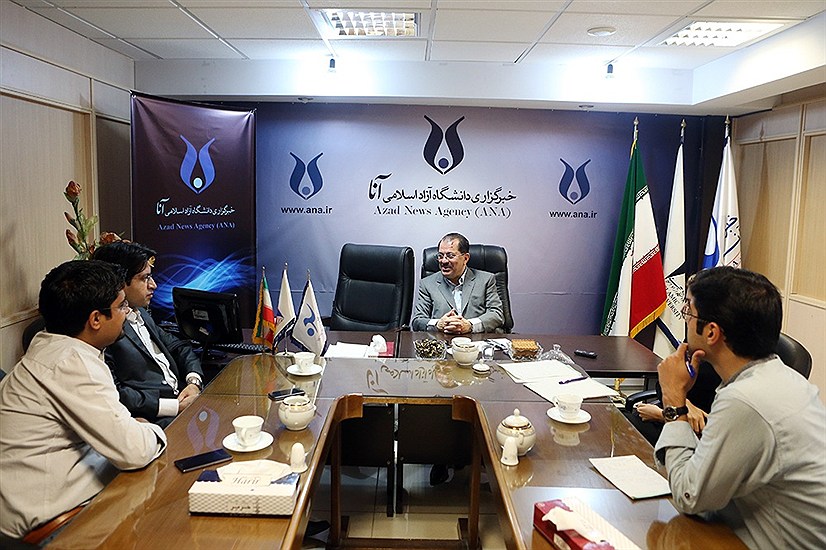
Relating the warnings to Mr. Maliki about impending danger Nazem Dabbagh was asked. He replied that our intelligence agency found out moves on behalf of ISIS but he discarded. Our warnings concerned with the unity and cooperation of some Sunnis, the members of the army, Tikrit people, Mosul and Samara with ISIS. In the answer to a question about the meeting KRG heads with ISIS members he said there was no such meeting. Since KRG cannot both to warn central government and to cooperate with ISIS. While at that time some Sunnis groups presented in Kurdistan and KRG was in touch with them. After a while some of them joined ISIS. In his view ISIS was not created both by us or central government, it was formed in the region 100 years ago. He continued that ISIS would soon be vanished. He added that ISIS has occupied Mosul, I predicted ISIS first attack Baghdad and then the Region all. He clarified that the differences between KRG and central government was effective in the Region’s function relating ISIS. Dabbagh added when Haydar-Al-Ebadi came to power as if there has been a new though dominating central government, thus it has provided the possible of more of cooperation of both sides.
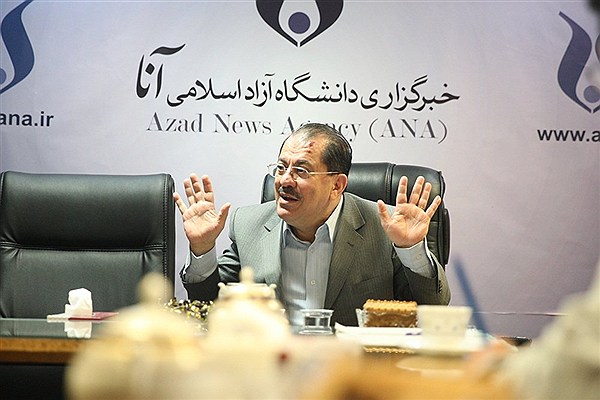
The other part of the talk was about the independence of the Region of Iraq. Dabbagh said the Region has always been trying to move according to the constitution, while it has shown his tendency to be independence. It is meant the Region is looking for independence but it will not do it without Central government’s agreement. He said in his opinion Maliki’s coming to power and his resigning was common view of Iran-America. Similarly he added the achievement of agreement will help to increase the security in Syria, Iraq and Lebanon.
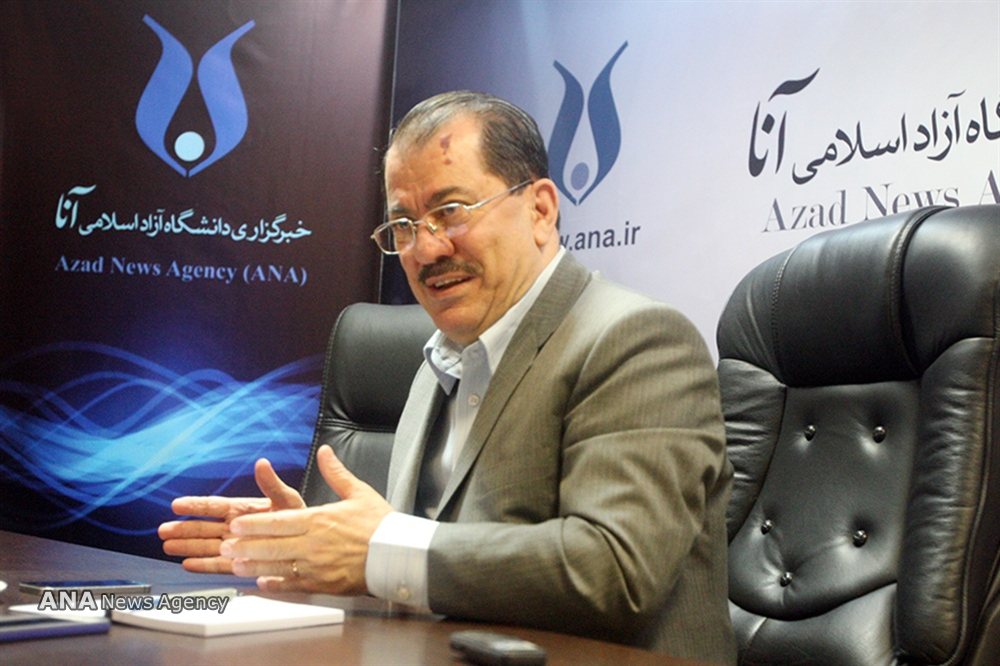
Concerning the possibility of the Region and Israel’s cooperation he said the region has four borders with four countries, Iraq, Iran, Syria and Turkey. Presently we have relationship with Iran, and in the current conditions of the region we cannot think of political relation with Israel in the future, nor are we willing to make Arabian and Muslim countries enemy with us. He said although Jewish live in the Region, there are no Israelis there.
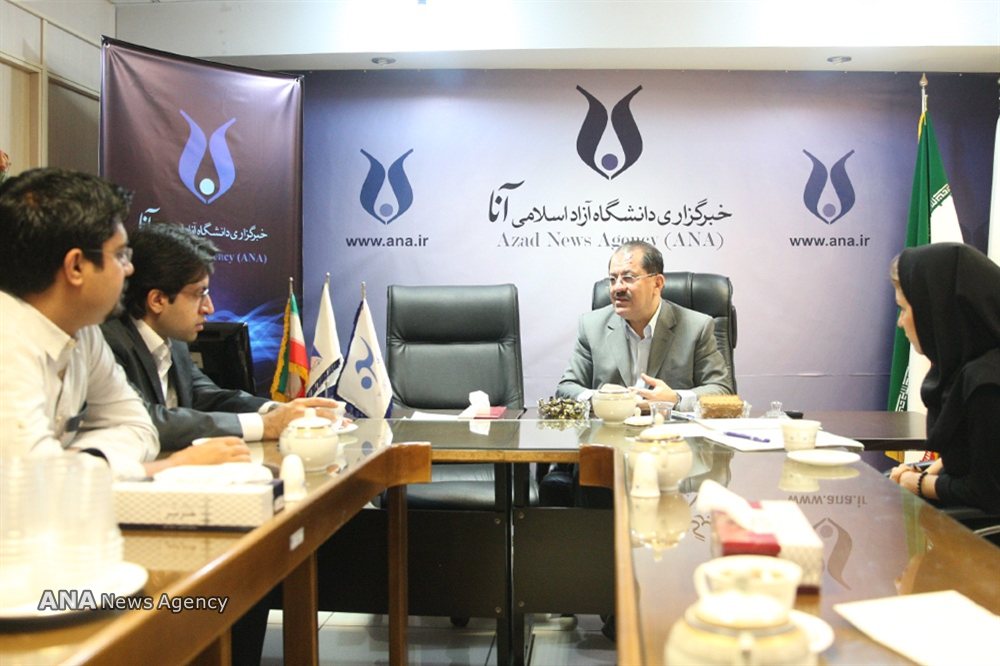
Another part of talks was about Kubaney. Dabbagh said that Kurds of Kubaney tend to P.K.K, thus Turkish government helped them late. But KRG sent 150 troops there three times. He continued the reconstruction of Kubaney has not started yet but programming to reconstruct it is being carried out.
Nazem Dabbagh in Talk with Jamejam Press: Infiltration in the Army is the Reason for ISIS’s Advance
Jamejam Press, relating to Al-Ramadi located in Al-Anbar province of Iraq, carried out an interview with representative of KRG of Iraq in Iran as follows:
About the reason of Al-Ramadi’s fall, Dabbagh said to the reporter of Jamejam: the Army of Iraq has not taken necessary actions to confront ISIS; they inspired them power instead. He went on: ISIS has taken an outstanding number of tanks and rocket launchers of army and even taken the command building of Iraq army called Al-Anbar operation in the west of the country under their control. In Dabbagh’s view the existence of vast differences among Iraqi leaders caused them not to realize the danger and not make any attempts to strengthen the unity among themselves. Dabbagh said: this is the fact that each of the group alone thinks of their benefits and is not unified. If these leaders thought of a democrat Iraq, they could prevent ISIS to advance and we would never witness the current events in Iraq.
In response to a question Dabbagh replied that through infiltrating in army, police and people of the region ISIS could widespread its strikes while the first tools of power is necessarily not military. The effect of information, people and the residents’ help, dare I say it, caused this ISIS to advance. Dabbagh, concerning America’s role, said: apparently America by air strikes helps the army. What is important to us is that if ISIS was not supported in Iraq, It could not gain power. He continued Iraq army asked America for help and if the USA is serious and wants to take any action, so can it, regarding its great weapons. Presently the condition of Iraq is severely worrisome.
Mohammad Seddigh Ahmed’s Note for Taadol Press/ Tehran, Baghdad and Erbil: a Transition to Realism
Mohammad Seddigh Ahmed (Jegarkhwein) the deputy-representative of Kurdistan Region of Iraq in Tehran, on the occasion of Fuad Masum’s first travel as the president of Iraq to Tehran, gave a note to Taadol Press as followed:
During recent years, Iran and Iraq as two important neighbor countries in the Middle East have had broadly progressing relations. Meanwhile this travel had more positive outcomes so that Masum’s travel can be considered according to this. The importance of mutual relations and political meetings, concerning the general view of regional crises and the increase of tension in the Middle East have turned out to be more than ever. During last year the emergence of new version radical-terrorist group, ISIS, has caused Iran, Iraq and Kurdistan Region’s relations entered a new stage and period which leads to collaborate and cooperate more broadly and effectively as compared to before. Indeed it must be insisted that since the new government has gained the authority and Maliki, whose mismanagement caused Iraq more critical and ISIS more powerful, has resigned, the balanced and cooperative approach with Iran has been clear more than ever.
Ultimately Ahmed, after having mentioned economic, security, culture and political issues, summed up his discussion in a way that the progress of relations between Tehran, Baghdad and Erbil can be deemed more positive and closer than before if all three sides support the current political trend in Iraq according to the correct understanding of facts and present conditions as well as insist on democratic standards and norms to solve and transit these critical and special situations on the basis of establishment of peace and security in the region and save of the regional nations from the threat of greatly and destructively tribal wars and unlimited violent and homelessness of millions people.
The Preparedness of the Army and People to confront Terrorist Groups
Aria News Agency- Nazem Dabbagh the representative of Kurdistan Regional of Iraq in Iran insisted on the preparedness of the army and people to confront with terrorist groups. He added: the triumph of Iraq army over ISIS group in the freed regions including Tikrit was for the participation of all forces and groups of Iraq. Dabbagh continued: people forces and Iraq army have the ability to fight against ISIS. He declared: the role of Shia authorities on the changes in Iraq to create unity and collaboration was effective and successful.
Latest News
- President Nechirvan Barzani's New Year Message
- New year message from Prime Minister Masrour Barzani
- President Nechirvan Barzani welcomes the New Consul General of Iran
- President Nechirvan Barzani meets with Dutch Defence Minister Ruben Brekelmans
- President Nechirvan Barzani meets İsmail Beşikçi
- President Nechirvan Barzani meets Italian Defense Minister Guido Crosetto
- Nechirvan Barzani: The flag of Kurdistan symbolizes our shared values
- President Nechirvan Barzani meets Commander of Coalition Forces
- President Nechirvan Barzani welcomes new Ambassador of the Czech Republic
- President Nechirvan Barzani meets with Admiral Sir Tony Radakin, UK Chief of Defense Staff
- President Nechirvan Barzani meets with German Defense Minister Boris Pistorius
- President Nechirvan Barzani attends ceremony for the reopening of Notre-Dame Cathedral
- President Nechirvan Barzani bids farewell to the departing Italian Consul General
- President Nechirvan Barzani receives the new Ambassador of the United Arab Emirates
- President Nechirvan Barzani receives the new Ambassador of Italy
- President Nechirvan Barzani meets with the Russian Ambassador to Iraq
- Nechirvan Barzani Commemorates the late Professor Mustafa Zalmi as a Beacon of Reform in Islamic Theology and Jurisprudence
- Nechirvan Barzani attends the 10th Anniversary of the American University of Kurdistan
- President Nechirvan Barzani bids farewell to departing US Ambassador
- President Nechirvan Barzani Meets with UK Home Secretary Yvette Cooper
- President Nechirvan Barzani in Vienna: Austria aims to enhance diplomatic and trade relations
- Kurdistan Region President meets with President of Austria
- President Nechirvan Barzani meets with Foreign Minister of Austria
- President Erdoğan reaffirms Türkiye’s continued support for Iraq and the Kurdistan Region
- President Nechirvan Barzani’s message on the 126th anniversary of Kurdish journalism
- President Nechirvan Barzani at the Sulaimani Forum: The country must bring us all together
- President Nechirvan Barzani meets with European Union Ambassador
- President Nechirvan Barzani receives French Ambassador
- President Nechirvan Barzani visits Iranian Consulate General to pay respects to victims of Kerman terrorist attack
- President Nechirvan Barzani receives outgoing French Ambassador

